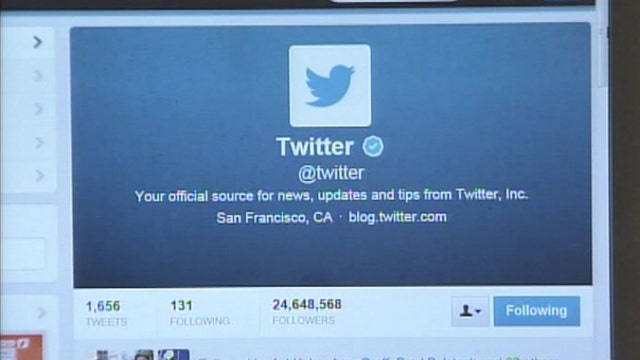Why Twitter Should Never Have Gone Public
Five years ago a certain columnist warned Twitter, “The public markets are no place for a young company that's trying to figure out its business model. Facebook’s on its way but Twitter hasn’t made a dime yet. Wait as long as you can, until you can't stand being poor and having to beg for cash any longer. I guarantee, it'll be worth the wait.”
Yeah, that was me. Did they listen? Nah. Too busy Tweeting, I guess. And who can blame them? Why listen to an old tech veteran talking common sense when you’ve invented the most popular verb since Google and your founders and investors are seeing dollar signs -- make that billions of dollar signs.
It’s ironic that, unlike Facebook, which famously botched the most overhyped IPO in history (its stock fell off a cliff and took more than a year to recover), Twitter executed the perfect IPO, its share price nearly doubling on the first day of trading. Which just goes to show how shortsighted and just plain wrong Wall Street can be.
Twitter spooked investors on Monday with lackluster user growth and engagement, both of which indicate that the platform is indeed flat-lining. Third quarter revenues grew to $361 million but losses kept pace, ballooning to $175 million. The stock has dropped about 15% since.
What’s puzzling is this quarter wasn’t all that different from last quarter, which was widely heralded as an earnings blowout. The Wall Street Journal reported “Twitter Results Silence Naysayers.” But I said, “Wall Street’s reaction was way overblown. And while I hate to break up the love fest, Twitter did not silence all the naysayers. Certainly not this one.”
Twitter has three very big problems: its product, its business and its CEO. Unfortunately, it doesn’t appear to be on track to solving any of them.
As a product, Twitter is relatively hard to use and not particularly engaging. That’s why it’s only managed to capture 284 million active users -- about a fifth of Facebook’s 1.3 billion and far fewer than the 400 million CEO Dick Costolo projected for the end of 2013. And users spend far more time on Facebook and other social media sites than they do on the micro-blogging site.
That’s Twitter’s fundamental problem and the reason why it has yet to attract a broad, mainstream audience beyond Hollywood, the media, celebrity stalkers and news junkies. But it also contributes to an even more concerning problem: the business.
While the vast majority of Twitter’s revenues come from mobile ad sales, Twitter’s market share is expected to be a miniscule 2.6% of the global mobile Internet ad market in 2014 -- a far distant third to Google’s 46.8% and Facebook’s 21.7% share, according to eMarketer.
And while some like to point out that Twitter would have squeaked out a tiny profit if it didn’t have $170 million in stock-based compensation last quarter, that’s not exactly a good thing. As a percentage of revenue, that’s the most of any company in the S&P 1500. And I believe that points to a problem with executive retention, which brings us to Twitter’s third and perhaps biggest problem: Costolo.
The famously mercurial chief executive has somehow managed to turn most of his leadership team since taking the company public almost a year ago. You’d expect to see that kind of revolving door in a turnaround situation, not a young high-growth technology company. That’s not a sign of an effective CEO, in my experience.
Besides, in addition to its current and ever-changing slate of executives, with all those former execs still on the books in other roles or as “consultants,” no wonder Twitter’s stock compensation expense is astronomical.
The truth is Twitter is still trying to figure out how to turn its current product into one that’s far more engaging to a far broader audience. If it ever does, that just might go a long way toward solving the business problem. If Costolo’s constant shuffling of the deck can help him find that magical solution, it would be a neat trick. But he’s running out of time.
Before joining Twitter five years ago, Costolo was a serial entrepreneur and an improve comedian, if you can believe that. I’m sure this past year has put his sense of humor and timing to the test. As I alluded to back then, the intense scrutiny under the bright lights of Wall Street is no place for a company to figure out what it wants to be when it grows up.
The decision to take Twitter public may turn out to be Costolo’s biggest regret.




















